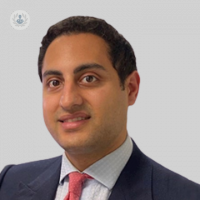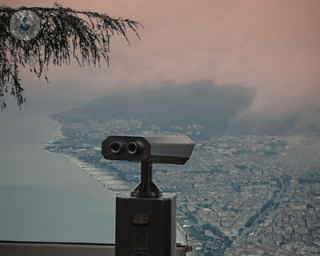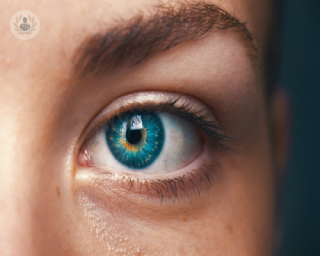Hyperopia (farsightedness)
Mr John Awad - Ophthalmology
Created on: 06-08-2015
Updated on: 06-27-2023
Edited by: Conor Dunworth
What is hyperopia?
Hyperopia (also known as hypermetropia, farsightedness or long-sightedness) is a very common eye condition in which distant objects will appear clearly, but objects closer up can appear blurry. If you suffer from hyperopia, your eyes are better at focusing on distant objects than nearby ones. Hyperopia generally affects adults over the age of 40, however, it can affect people of all ages and children too. Hyperopia can be corrected with glasses or contact lenses.

Symptoms of hyperopia
The symptoms that you might experience if you have hyperopia include:
- Nearby objects can appear blurry or fuzzy
- You might have to squint to see clearly
- Your eyes may feel tired or strained when focusing on nearby objects, such as reading or writing.
- You may have headaches
Children who have hyperopia may not have obvious symptoms at first, but if left untreated can develop other conditions such as a squint, crossed-eyes or a lazy eye.
Medical tests to diagnose hyperopia:
If you think you may be suffering from hyperopia, you will need to have an eye test, which can be booked at any local opticians. An eye test will confirm whether or not you are long-sighted and what prescription you will need for glasses or contact lenses.
You should have an eye test every two years to ensure your prescription is kept up-to-date. If you think your prescription has changed, book an eye test to confirm this.
What are the causes of hyperopia?
Hyperopia will occur when your eyes do not focus light on the retina correctly. The retina is the layer at the back of the eye. This may result from your eyeball being too short, the lens being unable to focus or having a flatter cornea. The cornea is the transparent layer at the front of the eye.
Treatments for hyperopia:
Children and younger adults do not always require glasses to fix their hyperopia because their eyes are able to adjust and adapt. However, adults will require glasses or contact lenses to adjust their vision. Adults who are interested in being independent from glasses can consider laser eye surgery to correct their vision.
Which type of specialist treats hyperopia?
Ophthalmologists will treat and diagnose hyperopia.





